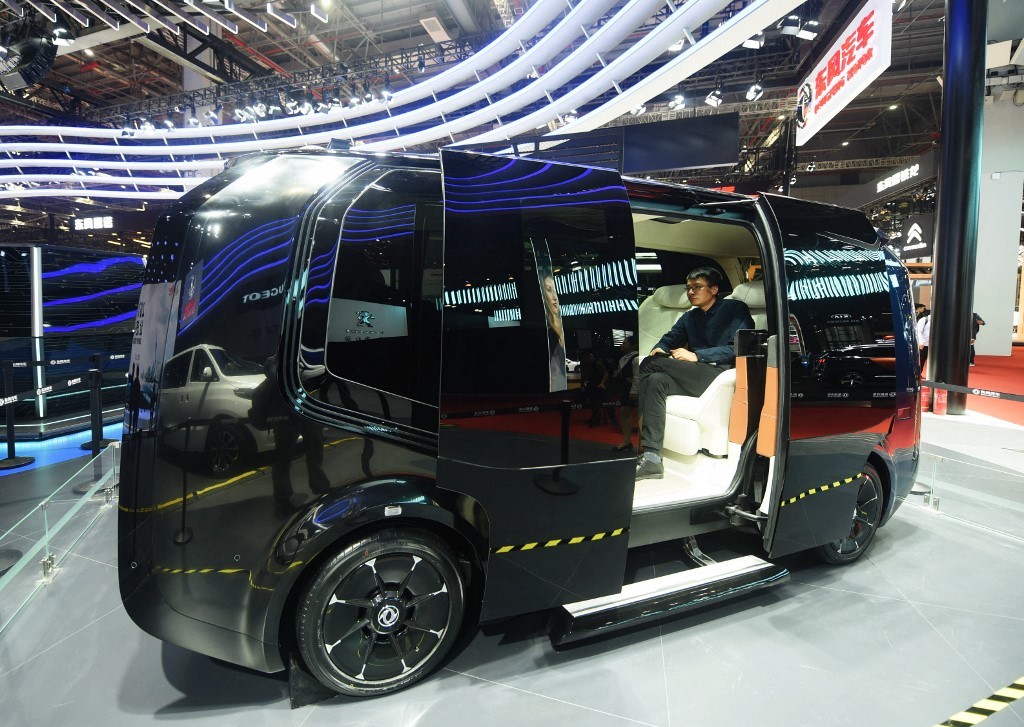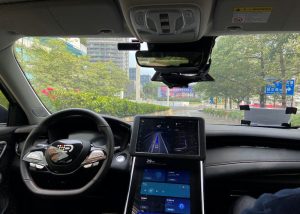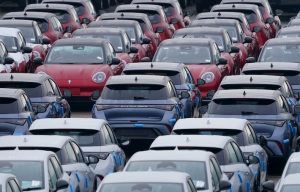(ATF) Autonomous-driving technology developed by Huawei has surpassed Tesla’s in some aspects – such as enabling cars to cruise for more than 1,000 kilometers (620 miles) without human intervention, rotating chairman Eric Xu told analysts in Shenzhen on Monday.
Xu also called for leaders around the world to restore collaboration on the global semiconductor supply chain, pointing out that US sanctions have not only crippled Huawei’s business but also disrupted the supply chain and caused semiconductor price hikes that will eventually be passed on to consumers.
Huawei has designed a sub-brand called “HI”, which stands for “Huawei Inside”, and the HI logo will appear on vehicles that use Huawei’s autonomous driving solution, said Xu, one of three executives who take turns to fill the top post.
The Chinese telecom giant will partner with three automakers initially to make self-driving cars that carry the HI sub-brand, which are Beijing Automotive Group Co (BAIC Group), Chongqing Changan Automobile Co and Guangzhou Automobile Group Co, according to Xu.
The first model under Huawei’s partnership with BAIC’s electric vehicle unit, BAIC BluePark New Energy Technology Co, will be unveiled at Auto Shanghai this weekend.
“My team told me that these are the best autonomous vehicles available, and can travel 1,000 kilometers without human intervention in urban areas. This would be much better than Tesla,” Xu told analysts.
With its once leading smartphone business smothered by sanctions placed by the former US president Donald Trump, Huawei has diversified its business by expanding into EV technologies, internet-connected devices, and business-focused 5G applications.
But Huawei is piling into an already crowded arena, in which an array of automakers from Tesla to local upstarts Nio, Xpeng, and Li Auto are battling for a slice of the world’s biggest EV market.
$1 billion for ‘smart car’ components this year
Huawei’s “smart” car business unit receives one of the heaviest investments, and Huawei will invest more than $1 billion in car component development this year, Xu said.
Smartphone and gadget maker Xiaomi unveiled plans last month to invest about $10 billion over the next decade on manufacturing EVs. Jack Ma’s e-commerce mammoth Alibaba Group and search giant Baidu have also teamed up with traditional automakers to make EVs.
“China adds 30 million cars each year and the number is growing. Even if we don’t tap the markets outside of China, if we can earn an average 10,000 yuan ($1,527) from each car sold in China, that’s already a very big business for Huawei,” Xu added.
Amid intense pressure on its supply chain from US sanctions, the Chinese telecom giant reported total revenues of 891 billion yuan ($136.7 billion) for 2020, up 3.8% from the previous year, which was its slowest annual increase in the past decade.
But there has been no US backdown. US President Joe Biden has not signalled that he would go more easy on the tech giant.
‘US sanctions led to panic stockpiling of chips’
Meanwhile, Xu blamed the global chip shortage on US sanctions.
US sanctions on Huawei over the past two years had not only done significant damage to the company’s business but also “disrupted trust throughout the industry’s global supply chain”, he said.
“Because of US actions against Huawei, we have also seen panic stockpiling among many companies worldwide. In particular, some Chinese companies that never would have stockpiled before now have stockpiles to last three months, six months, or even longer,” Xu said.
A zero-inventory supply chain that the industry had spent years to build has been disrupted, and leaders around the world should make the wise political choice to restore collaboration, he added.
While panic stockpiling may have contributed to global chip shortage, analysts say it is a multi-faceted issue.
During the Covid-19 pandemic, many chip makers held off expanding their production capacity, while on the other hand the consumer demand for games consoles, laptops and TVs soared as people snapped up these chip-powered devices to help get through lockdowns.
The high concentration of contract chipmakers and the prolonged period it takes to expand capacity are also key factors.
Earlier this month, Nikkei Asia reported that production of some of Apple’s MacBooks and iPads has been postponed due to the global component shortage, despite the US tech giant’s purchasing capacity.
























